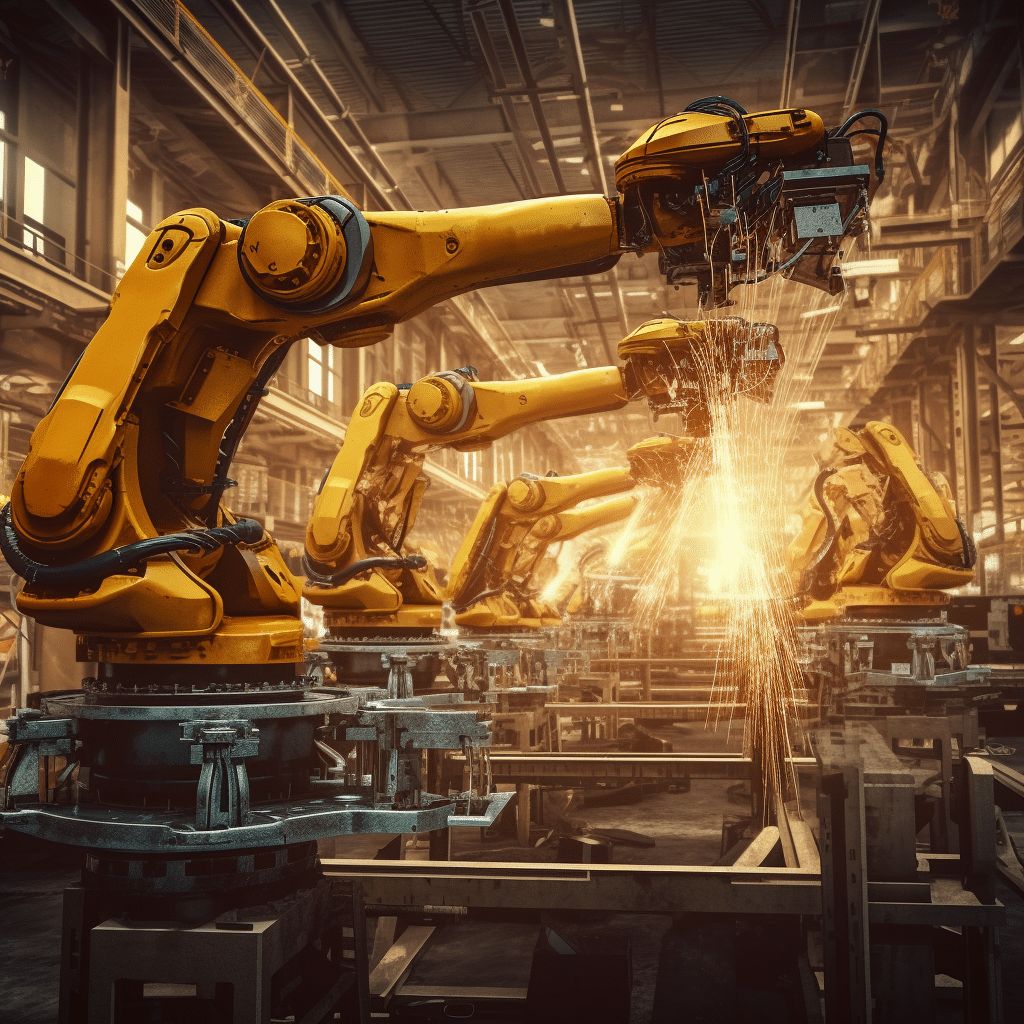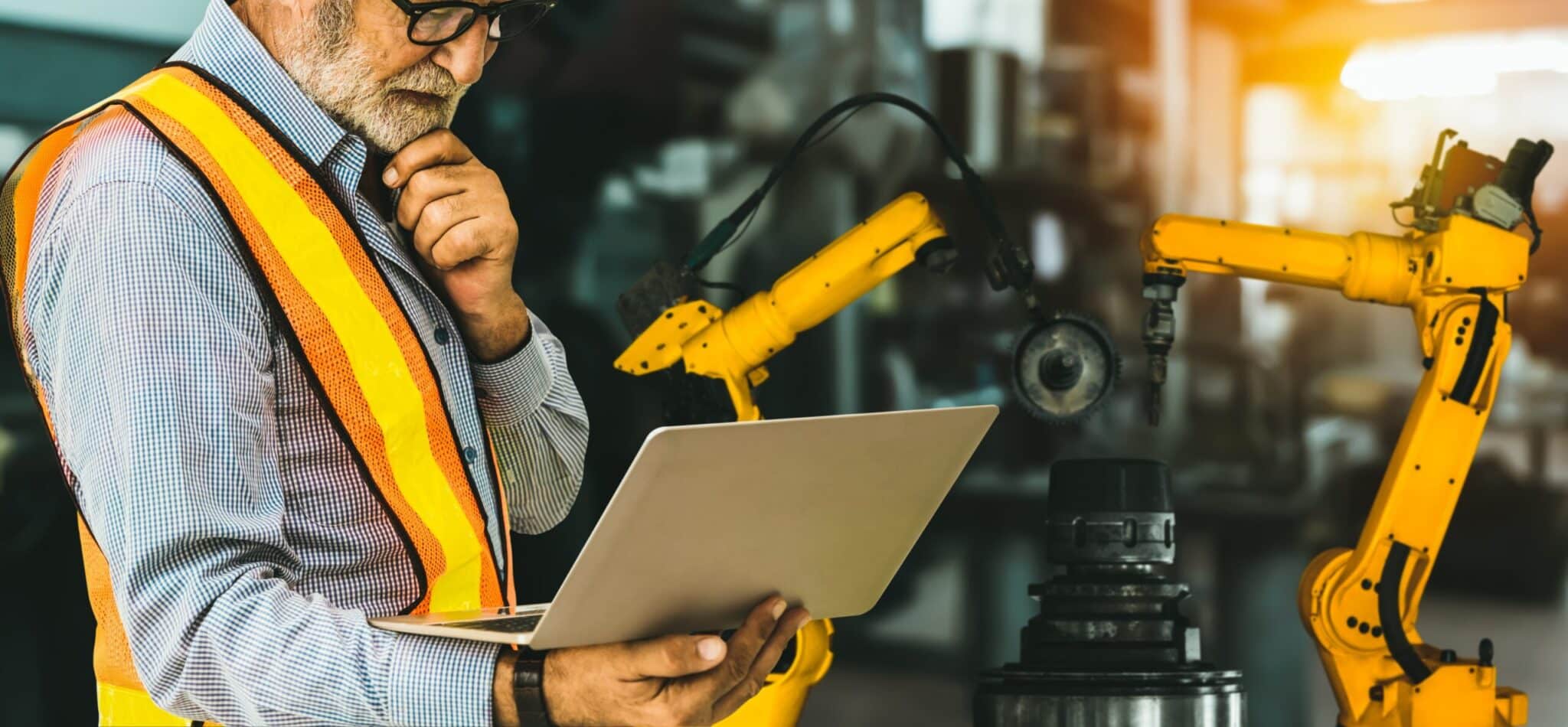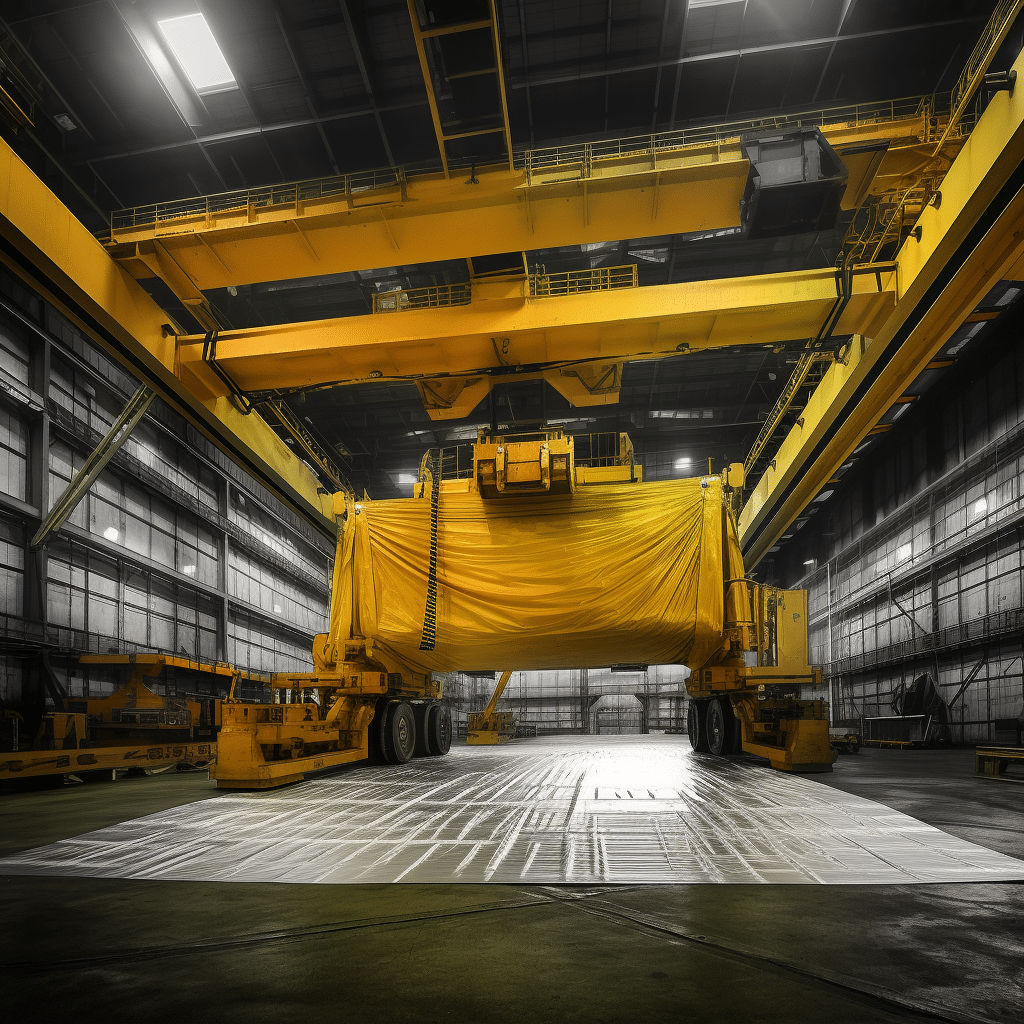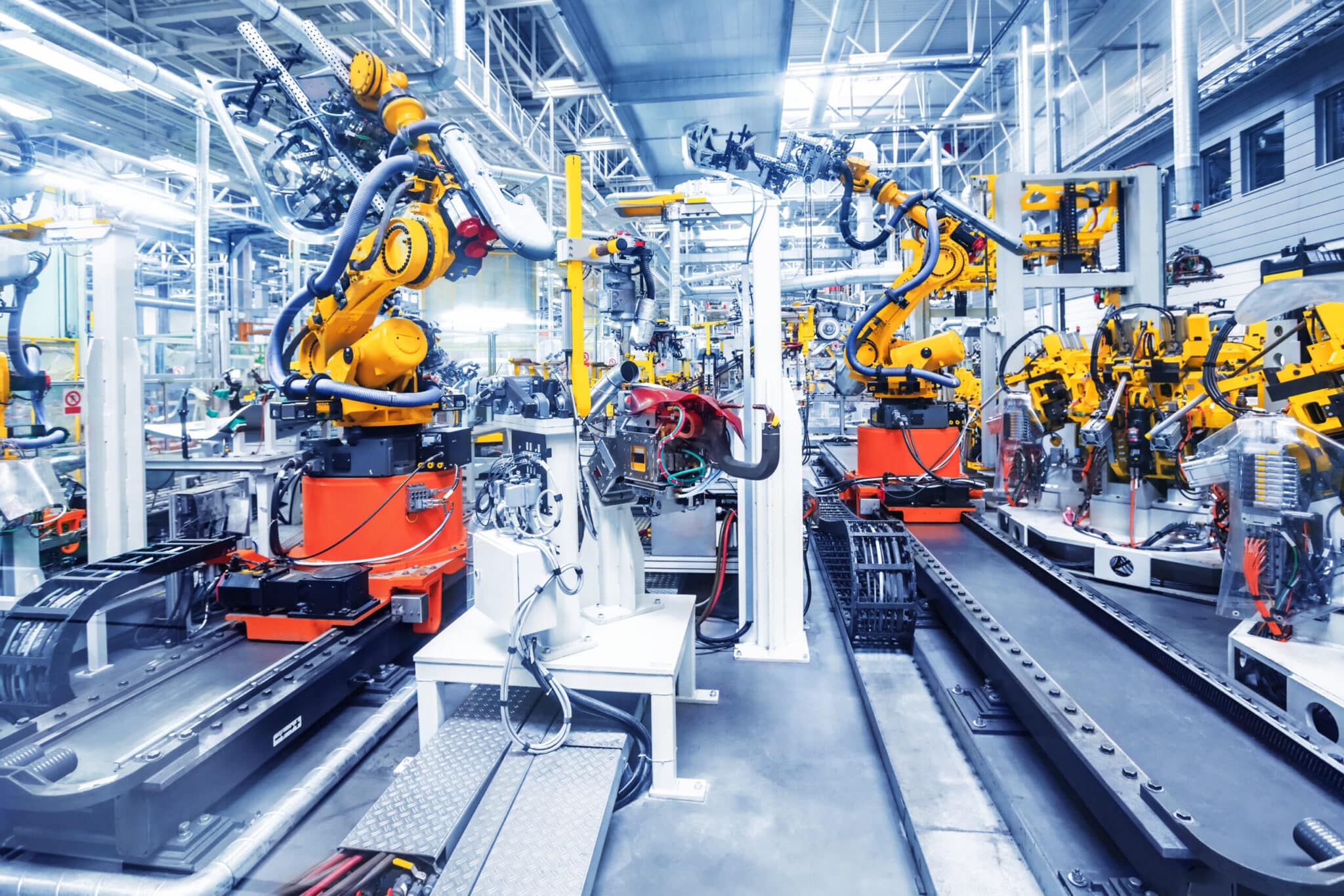Whatever your field of activity, efficiency and quality are always fundamental issues. Also, it is possible to reach these objectives by using industrial automation processes and robotics: specialties that have no secret for Alpha Contract Manufacturing Group (ACMG) and its partners.
Modern manufacturing is not complete without industrial automation. Leveraging industrial automation may boost productivity, lower labor costs, and enhance product accuracy and quality by automating complicated and repetitive processes.



Alpha Contract Manufacturing Group allows you to work with a team of professionals who are always able to meet all your needs. You can thus benefit from a solid expertise ranging from automation to robotics in order to materialize your projects. ACMG specializes in process improvement, ergonomics of a workstation, design studies, operator interface modifications, custom control systems and factory testing.
Pre-assembly / assembly, parts insertion; Surface treatment; Packaging, handling, crating, palletizing; Identification, marking, printing on products; Quality control; CNC machining equipment, drilling, boring, tapping; Disentangling, alignment, positioning of products; Volumetric depositors; Brine tanks; Mixers/agitators; Dough fragmenters and elevators; Continuous industrial fryers; Turners; Tanks; Dish dispensers (unstackers); Piston pumps (soups, cretons, sauces, etc.); Deep freezing tanks; Frozen food tanks. ); Freezing tanks; Meat cutters; Packaging, bagging and crating equipment; Complete production lines; Machining and drilling equipment – doors and windows sector, etc.
Handling flow management and optimization; Lifting equipment; Transport clamps; Plating lines; Stackers; Packaging equipment; Lifting, pivoting, tilting tables, etc. Lifting tables, pivoting, tilting, etc.; Customized shelving; Assembly lines; Transport carts; Customized motorized drawer shelving; Swivel manipulators; Elevators; Assembly lines with integrated workstations; Handling lines with integrated automated operations; Spiral conveyors, ascending, descending, curved, multi-speed separators, elevators, buckets, cleats, aerial, screw, magnetic, vibrating, integrated scales, gravity, etc.
Automated drilling centers; Assisted tools (drilling, machining, etc.); Insertion equipment; Screwing, assisted nailing equipment; Custom cutting; Automated machining; Assembly; Embossing; Part inspection; Positioning, welding, machining, go no-go jigs.
Continuous hanging hook washing equipment; Batch ultrasonic parts washing cabinets; Drying equipment; Filtration systems; UV treatments.


With the right tools at your disposal, it becomes very easy, but also very interesting to automate your industrial operations. It is still important to understand what these advantages are, as well as the obstacles to overcome, in order to develop the support of an automation project.
The benefits of industrial automation of operations most often cited by industry professionals are cost reduction, increased productivity, increased safety, increased equipment reliability and better access and admission control and management.
The vast majority of today’s businesses are facing global pressure to become more profitable. One approach is to reduce costs. The advantage of industrial automation is that you can save on operating costs as well as labor costs. Among other things, it allows you to keep costs related to hiring, paid vacations, but also to holidays and staff training reduced. This saving improves your competitiveness and allows you, in the medium and long term, to perpetuate the jobs of your current employees as well as to recruit specialized professionals.
Industrial plants that benefit from industrial automation are generally less prone to breakdowns, which allows companies to save a lot of money on costs related to frequent maintenance.
Industrial automation leads to a significant improvement in a company’s productivity by acting on 2 main factors:
Worker safety is another important reason to automate an industrial operation such as a manufacturing industry. It is interesting to entrust machines but also robots with dangerous tasks that present a high risk for the personnel in place. Furthermore, comprehensive and advanced automated safety controls can be implemented via applications for equipment, components, personnel and systems involved in the production process and the production line.
Reliability is one of the most vital elements in today’s competitive climate. Thus, human errors can lead a company to potentially catastrophic situations (e.g. quality problems, loss of production, dissatisfied customers, …). In order to reduce the risk of human error that can be caused, for example, by fatigue or lack of motivation, companies can trust automated processes.
The addition of a new task, application or product to a production process requires human intervention for training and basic instructions. Automated devices can therefore be reconfigured or reprogrammed to perform any task, accurately without delay. So you also gain flexibility.
Access control is important to manage the admission of people, an action that has a direct effect on the well-being of employees, but also of customers and partners. Moreover, it will have an effect on the confidentiality of information, as well as on the integrity of your company’s assets and infrastructure.
Business automation and factory automation are important in today’s competitive climate. Whether it is complex automation with advanced instructions for industrial devices or simple and flexible automation with digital technologies for Quebec’s manufacturing management industries, it is imperative for companies to use it.
As its name suggests, this type of industrial automation is the least flexible. It is often used for repetitive tasks with dedicated equipment, which improves productivity and throughput. Once a simple automation system has been implemented, it is difficult to change the process or configure the equipment. Automated manufacturing systems are characterized by high initial cost and are suitable for mass production.
It is generally used for batch production where the instructions of the automated system are changed over time and according to the product being manufactured through programming. The program can be reprogrammed for each batch with specific characteristics and required processing and sequencing tasks. Reconfiguring equipment from one production run to the next typically takes some time, resulting in downtime during those periods. Programmable automation tends to be less productive than fixed automation because the equipment was not built to specialize in one type of production. Medium-volume programs are usually automated with programmable logic controllers.
It is generally used for batch production where the instructions of the automated system are changed over time and according to the product being manufactured through programming. The program can be reprogrammed for each batch with specific characteristics and required processing and sequencing tasks. Reconfiguring equipment from one production run to the next typically takes some time, resulting in downtime during those periods. Programmable automation tends to be less productive than fixed automation because the equipment was not built to specialize in one type of production. Medium-volume programs are usually automated with programmable logic controllers.

In view of the new market requirements and the strong competition in the manufacturing sector, more and more manufacturing companies are resorting to subcontracting in order to reduce their production costs, to increase their performance or to meet a higher demand. In this context, the first challenge is generally related to the choice of new partners. Surrounding oneself with subcontractors that really meet all one’s specific expectations is not easy. The ideal solution is to contact a group of companies specialized in industrial subcontracting.
We apply these values when it comes time to choose our partners and begin each of our projects to ensure that every client also benefits.
Industrial automation is the use of control systems, such as computers or robots, to control industrial machinery and processes in order to increase productivity and efficiency. Automation can be used to improve the quality of products, minimize costs, reduce labor and increase safety in the workplace.
Automation of industrial systems and processes is made possible through the use of programmable logic controllers (PLCs), supervisory control and data acquisition (SCADA) systems, and other automation technology. This industrial process is currently used by companies in various sectors, such as the food industry or the manufacturing of consumer goods. Industrial automation has enabled businesses to increase production efficiency, reduce costs, improve product quality, and create safer working environments. It has also enabled them to become more competitive in the global market.
The distributed control systems, field bus, programmable logic controllers, motion control, data acquisition, automation sensors, industrial robotics, and industrial networking used to control and automate production processes are the most frequently encountered problems when it comes to industrial automation challenges. These difficulties include the complexity of systems and the required ongoing maintenance.
Industrial automation often takes the form of automatic control systems controlling processes without significant human intervention. An example of this is an assembly line with sensors and solenoid valves, using a control loop feedback mechanism to ensure optimal production rates.
The four types of industrial automation are fixed automation, programmable automation, flexible automation, and integrated automation. Each type involves different combinations of hardware components, control action sequences, and complexities of control algorithms.
Types of industrial automation include fixed (or hard) automation, programmable automation, flexible (or soft) automation, and integrated automation. These involve varying levels of digital control and analog control systems, depending on the specific applications and needs of the industry.
Yes, there is a significant future in industrial automation. With the continuous evolution of brilliant technologies, including Cognitive Automation and Business Process Automation, industries are increasingly incorporating automatic controls and industrial control systems into their operations.
Examples of automation include self-driving cars, automatic washing machines, programmable logic controllers (PLCs) in manufacturing, agricultural automation in farming, and closed-loop control systems in industrial control systems. These involve various elements in control circuits, and often use complex control algorithms.
The automotive industry is often considered the most automated, using a multitude of automatic controls and real-time parameters to enhance productivity. From bottle machines to complex assembly lines, the industry heavily relies on automatic and analog control systems.
The three major systems used in industrial automation are Supervisory Control and Data Acquisition (SCADA), Distributed Control Systems (DCS), and Programmable Logic Controllers (PLCs). These systems involve different control actions, ranging from sequential control to event-driven control, and use different types of controllers such as the derivative controller.
Industry 4.0, also known as the fourth industrial revolution, is often associated with automation because it heavily relies on digital control, real-time data, and machine-to-machine communication. This involves the integration of industrial control systems, closed-loop control, and complex control algorithms to increase efficiency.
Industrial automation works by using control systems like PLCs to automatically manage machinery and processes. The feedback loop in these systems makes real-time adjustments based on sensor data, ensuring that variables like temperature or pressure stay within defined parameters. This often involves elements like valves and electrical contacts.
Learning industrial automation can be challenging due to its technical nature involving analog control systems, event-driven control, and complex control algorithms. However, with a good grasp of the fundamentals of workplace automation and Control Engineering, understanding the concepts becomes more manageable.
In automation, a Programmable Logic Controller (PLC) is used to control machinery and processes. It uses inputs and outputs to interact with the physical world, such as reading sensor data or closing valves. PLCs can handle complex control algorithms, enabling precise control over industrial processes.
The five levels in industrial automation are field level (sensors, actuators), control level (PLCs, industrial PCs), supervisory level (SCADA systems), operations level (manufacturing execution systems), and corporate level (ERP systems). Each level contributes to the control action, using various hardware components and control methods.
Industrial automation offers numerous benefits, including increased productivity, improved product quality, reduced operating costs, and enhanced safety. By leveraging open-source hardware and automation technologies, businesses can minimize human errors, manage real-time parameters, and deliver high-quality products.
Hardware components are critical in industrial automation, including PLCs, sensors, actuators, valves, and other elements in control circuits. They interact with the physical world, collecting data or executing actions based on complex control algorithms and feedback from control systems. The applications are vast, ranging from product design to control of industrial processes.